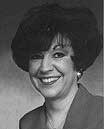 | Deborah Levering
is the independent owner of Comfort Keepers, a nationwide franchise that provides non-medical in-home care for seniors. Deborah has a diverse background in business and believes that she finally found her 'niche' in 2001 when she entered this field. She is a member of the National Association of Women Business Owners, Wichita Independent Business Association, AARP and the Kansas Home Care Association. Deborah has developed and facilitates an Aging Parents Seminar for anyone who has become (or expects to be) a primary caregiver for a family member. Deborah is available to her staff and clients 24/7 by phone at 316-773-7775 (office) or (cell) 316-807-0185. Send e-mail inquiries to wichita@comfortkeepers.com |
Senior Living
2003-09-01 15:40:00
Handing over the car keys
: When and how, do I ask my aging mother to hand over her car keys?
ANSWER: For most of us, our parents were always there when we needed them. They fed us, clothed us, and they tried to teach us everything they knew…including driving. With all the history and emotions you and your mother have, it's never going to be easy to tell a parent that it's time to hand over the car keys for good. Nobody wants to have that conversation, which is why people tend to put it off as long as possible. But, as recent headlines in Santa Monica, CA show, there can be deadly consequences to continuing to drive when it's no longer feasible. Statistics show that younger drivers, from 16 to 24, still have by far the most crashes of any age group. But the problem of drivers with poor eyesight and slow reflexes is just going to get worse. In 1995, 1 of every 11 drivers in the United States was over 65. By 2020, 1 of every 5 drivers will be over 65, according to the National Institute on Aging. The first step is simply to start the dialogue, and that's the hardest part. What should you say? First, be prepared:-Build your case. If you feel safe, and haven't done so in a while, take a drive with your mother to get a sense of whether your intuition is right or not. It may turn out that your mother is a safer driver than you suspected; but if your hunch bears out, you'll have at least one reference point to go to when you have your discussion. If driving with a parent isn't feasible, talk to relatives or friends, who may have anecdotes of near misses and fender-benders.-Steer the conversation towards recent headlines-national or local-that involve an elderly driver as the cause of an accident. Get a sense of what your mother thinks. You might want to ask when she plans on giving up driving. You may get an answer like; "Oh in five or 10 years," which will help you know what you're up against. Your mother may know exactly what you're up to with this lead in, but at least the conversation has been started.-Don't be afraid to use guilt. Ask your mother how she will feel if she ends up on the news for injuring a pedestrian.-Be gentle but firm; try not to be insulting or confrontational. If you make your mother angry or hurt, which may be impossible to avoid, she may be more likely to stubbornly cling to the idea that she should be on the road. -Rely on experts. Realize that it may be difficult for your mother to agree with you. Suggest that she visit her doctor or ophthalmologist to get an assessment on her reflexes or eyesight. Give her materials about older drivers. To receive the free publication, "Drivers 55-Plus: Test Your Own Performance," by the AAA Foundation, write to 1440 New York Ave. N.W., Ste. 201, Washington, D.C. 20005. Most importantly, offer solutions to giving up the car keys. Volunteer to drive your mother to church or on errands. Since you can't always be there, consider turning to a professional caregiver or companion service. Your mother may not be so distraught about relinquishing her keys, and might even be relieved to know that when you're not available, someone else will be


